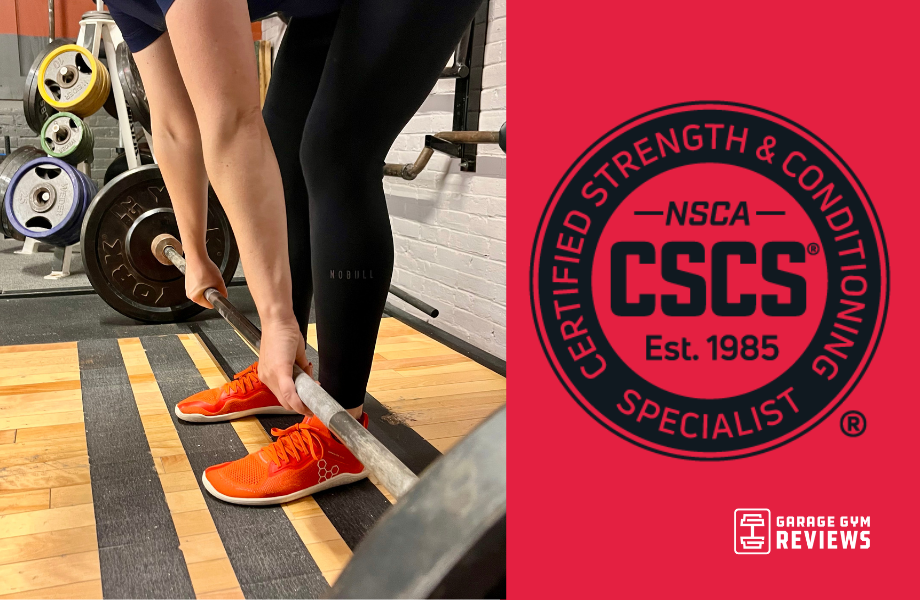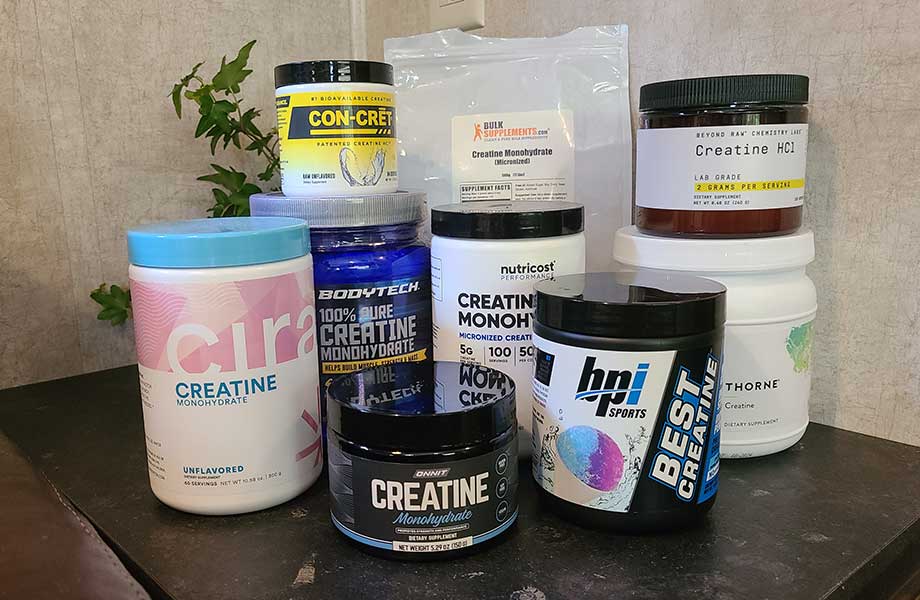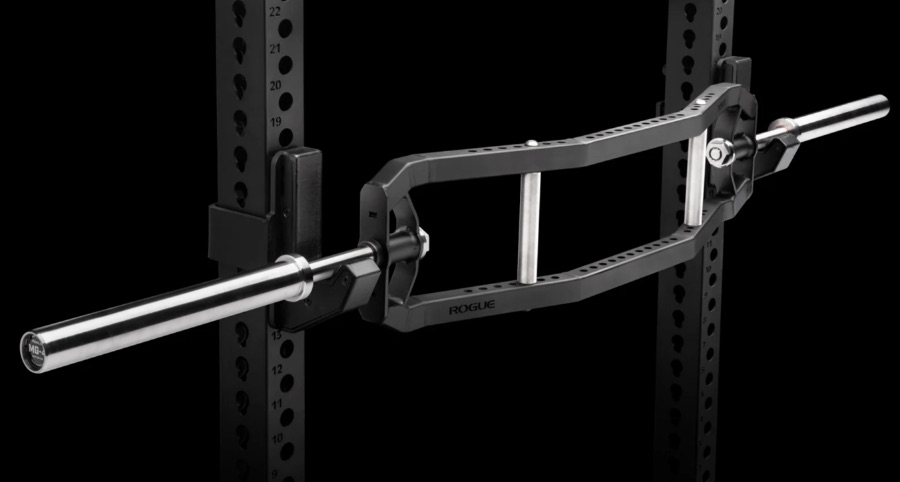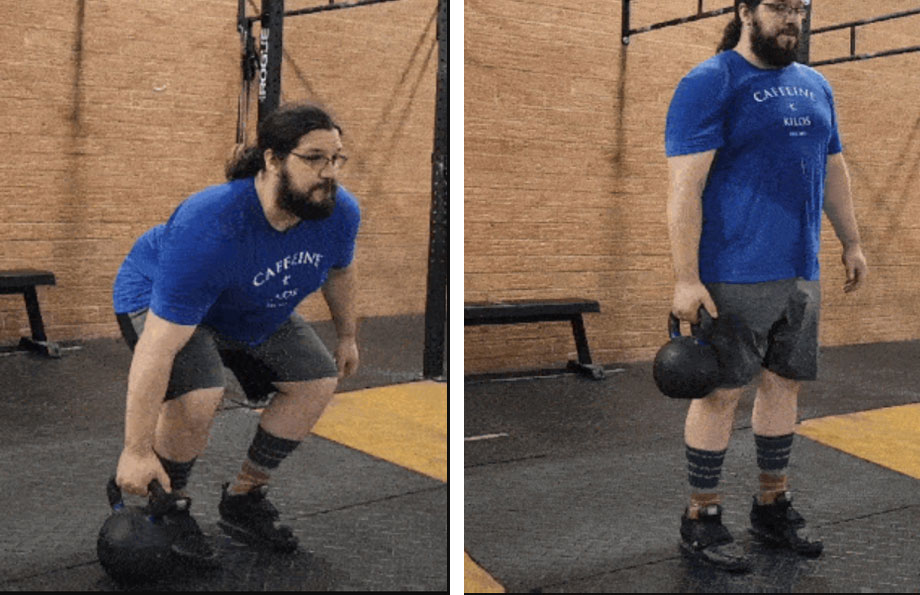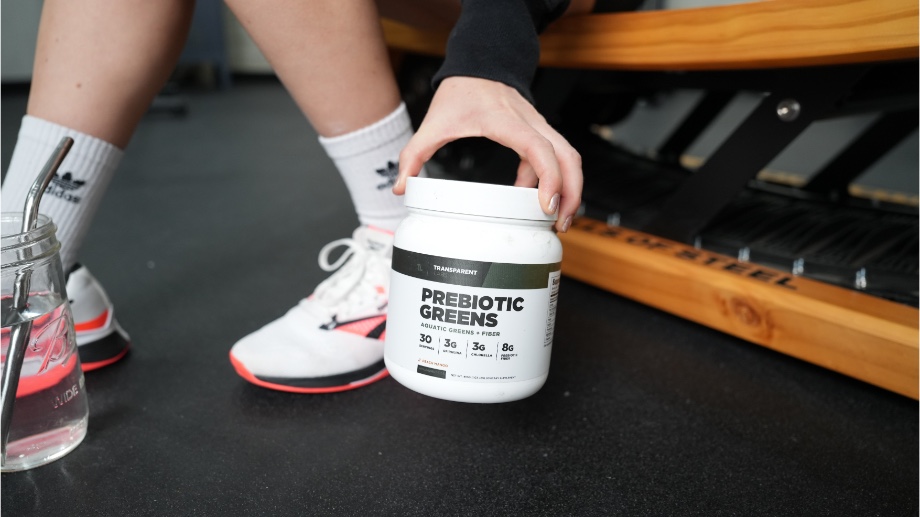If you are wondering how to become a personal trainer or you’re serious about leveling-up your coaching career, you may have heard about the Certified Strength And Conditioning Specialist (CSCS) credential from the National Strength And Conditioning Association (NSCA).
If you’re still scratching your head wondering, “What is CSCS?” Have no fear, you’re in the right place. I’m going to walk you through the NSCA CSCS certification prerequisites, study materials, costs, and passing scores.
And you don’t have to just take it from me, I spoke with Jarrod Nobbe, CSCS, USAW-L2, and Garage Gym Reviews expert panelist about his journey to passing the exam. I also spoke with Liz Myers, CSCS and owner of Mountain Edge Performance, which specializes in strength and conditioning for ski and snowboard athletes.
Fitness Industry Experts Talk About the CSCS Test
Why trust me and my team here at Garage Gym Reviews? Well, we’re not just keyboard warriors, we’re a group of fitness professionals with certifications to back up our passion for fitness. We also have a network of fitness industry professionals we call on for their expert take.
I’m also a member of the NSCA and a NSCA-CPT (certified personal trainer). Although I have not taken the CSCS exam, I will use my personal knowledge of the NSCA to help lay the groundwork for preparing and taking an NSCA exam.
I also spoke with my colleague, expert tester, writer, and Olympic-level Weightlifting athlete Caine Wilkes. At the time I’m writing this review, Caine is currently studying and preparing for the CSCS exam.
Needless to say, at the end of this review, our collective knowledge of the NSCA and the CSCS requirements will help you understand who this certification is ideal for and what to expect if you decide to register.
RELATED: NASM CPT Review
CSCS Certification
NSCA CSCS Certification
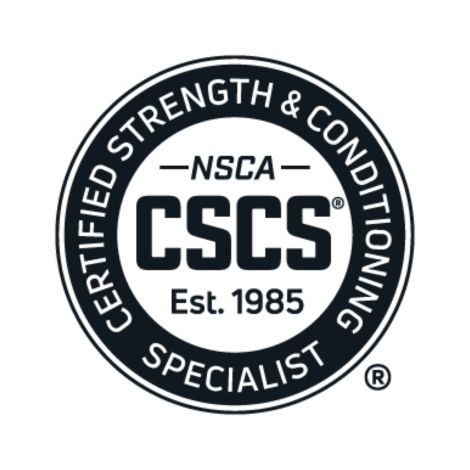
Product Highlights
- Certified Strength and Conditioning Specialist
- Prepares coaches to work with athletes and teams
- Bachelor’s degree required
- CPR/AED certification required
- 220-question exam
- 38% overall pass rate
Pros & Cons
Pros
- Highly recognized certification
- Delivers in-depth knowledge of strength and conditioning
- Multiple-choice question exam
Cons
- Study materials are separate from exam costs
- Exam must be taken within 120 days of registering
- In-person exam only
- Exam pricing starts at $340
Bottom Line
The CSCS program has been the gold-standard in the strength and conditioning community since 1985. The certification qualifies candidates to work with athletes, teams, and other sport-specific scenarios. To sit for the CSCS exam, you must have a bachelor’s degree or higher (or currently be enrolled as a college senior at an accredited institution). The CSCS is certified by the National Strength and Conditioning Association (NSCA).
A Quick Look at the CSCS
The NSCA is an international, nonprofit, educational organization for strength and conditioning professionals. In 1978, the NSCA was formed by a group of 76 strength coaches looking to collaborate on resources and education in the strength and conditioning industry.
It’s now an organization with more than 60,000 members spanning over 70 countries. The NSCA is also the leader in research and development for fitness industry professionals.
The CSCS certification started in 1985 and was the first first certification of its kind to be accredited by the independent National Commission for Certifying Agencies (NCCA). It’s become one of the most recognized (if not the gold standard) certification for to coach and lead collegiate-level sport teams and high-level athletes.
The certification signals to colleges, sports teams, and performance facilities that CSCS coaches have practical experience with athletic performance and injury prevention.
RELATED: Cross Training Exercises For Endurance Athletes
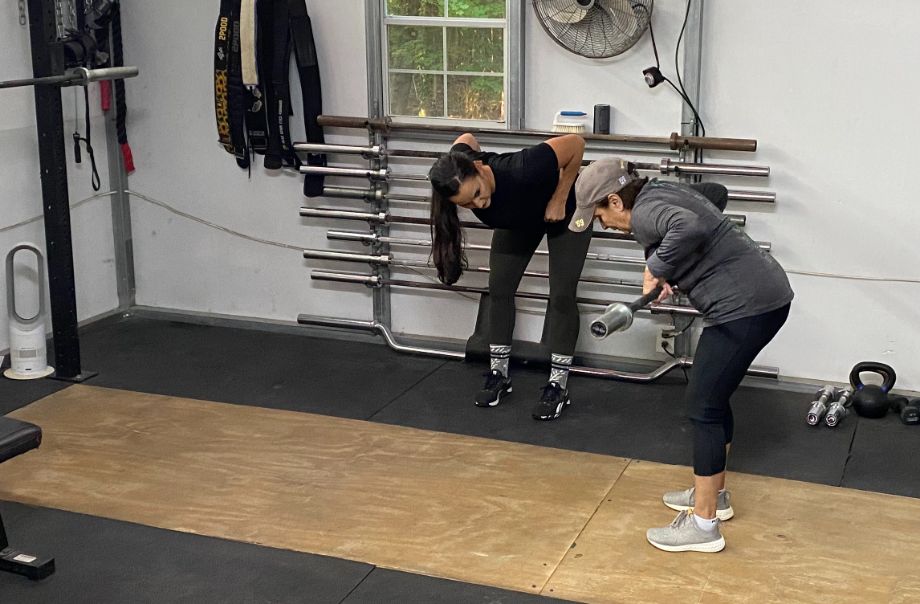
Before You Buy
- Study materials, text books, and prep quizzes are all additional fees from the exam.
- The CSCS exam has to be taken in-person at a Pearson VUE Testing Center.
- Once you register for the CSCS exam, you must take the test within 120 days.
- To stay current with your CSCS credentials after the exam, you’ll be responsible for your recertification process every 2 years.
Is the CSCS Exam and Certification Worth It?
The CSCS is one of the most in-depth strength and conditioning certifications you can earn as a coach. The exam is 220 multiple-choice questions covering everything from sports nutrition and program design to sports psychology and exercise technique.
It’s not just a difficult and lengthy exam, you also have to have a bachelor’s degree and a CPR/AED certification to sit for the exam. However, if you have the prerequisites (and the determination to study the materials), the CSCS is worth it from a career standpoint.
Both Jarrod Nobbe, CSCS and Liz Myers, CSCS agree that the certification opens doors to aspiring coaches. It’s one of the most recognized and well-established certifications for working with athletes and teams.
RELATED: Guide to Outdoor Training
Liz reflects on her internship at a sports performance facility in Park City, Utah right after college by saying, “I don’t know if they would have just taken anyone. I think the CSCS definitely gave me a leg up. It’s one of the reasons I got that certification in the first place.”
Jarrod notes that, “If you want to go into collegiate strength and conditioning, having your CSCS is definitely one of those first boxes that they look to check off.”
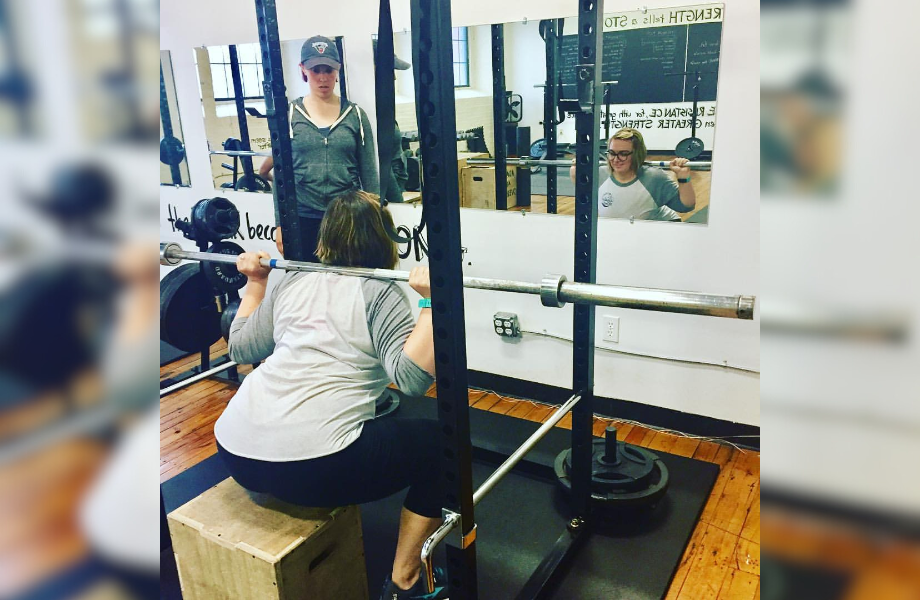
The certification exam will cost you either $340 for NSCA members or $475 for non-members. If you’re not already a NSCA member, the annual membership fee is $65 for students and $130 for professionals. The membership gives you access to scholarly journals, NSCA publications, free and discounted CEUs.
And unless you’re fresh out of college, you probably don’t have the Essentials Of Strength Training And Conditioning (4th Edition) textbook lying around. The textbook goes for about $100 on the NSCA website and about $60 to $80 on Amazon.
However, you can bundle the textbook with an online study course—which will be helpful for those of us who don’t have an exercise science degree—for about $269 (or $265 for members). You can also buy a 204-question practice exam for $200 (or $150 for members).
Although the CSCS certification isn’t a package deal with coursework included in the price, the overall price (even if you buy the online study package and practice exam) will cost just under $900 (which I’ll break down in detail later).
This price is similar to other popular certifications like NSAM, ISSA, and NCSF. However, the CSCS is the gold standard for coaches who want to work with athletes. It’s a resume-booster and a foot in the door. And though it’s not cheap, because it’s a highly regarded certification, the CSCS earns a 5-out-of-5-star rating for overall value.
Great for:
- Working with athletes
- Coaching large teams
- Injury prevention
- Coaches well-versed in physiology and kinesiology
Not recommended for:
- Working with general population clients
- Brand new coaches
- Folks without a bachelor’s degree
CSCS Cert Specs
| Prerequisites | Bachelor’s degree, CPR/AED certification |
| Study options | Self-guided through textbook, practice quizzes and tests, and some live prep courses available |
| Hard copy materials available? | Yes; textbooks available for $107 for members, $108 for non-members |
| Pricing | $340 for NSCA members, $475 for non-members |
| Term length | You have to sit for exam within 120 days of registering |
| Exam format | 220 multiple-choice questions (broken into 2 sections) |
| Exam location | In-person at Pearson VUE Testing Center |
Prerequisites And Exam Eligibility
It’s important to note that if you plan to sit for the CSCS exam, the NSCA requires that you have a Bachelor’s degree or higher. The exception to that is if you’re a current college senior.
You’ll even have to submit an official transcript showing your bachelor’s degree. Both Bachelor of Science and Bachelor of Arts are acceptable—meaning you don’t have to have a BS in Kinesiology or Exercise Science to take the exam.
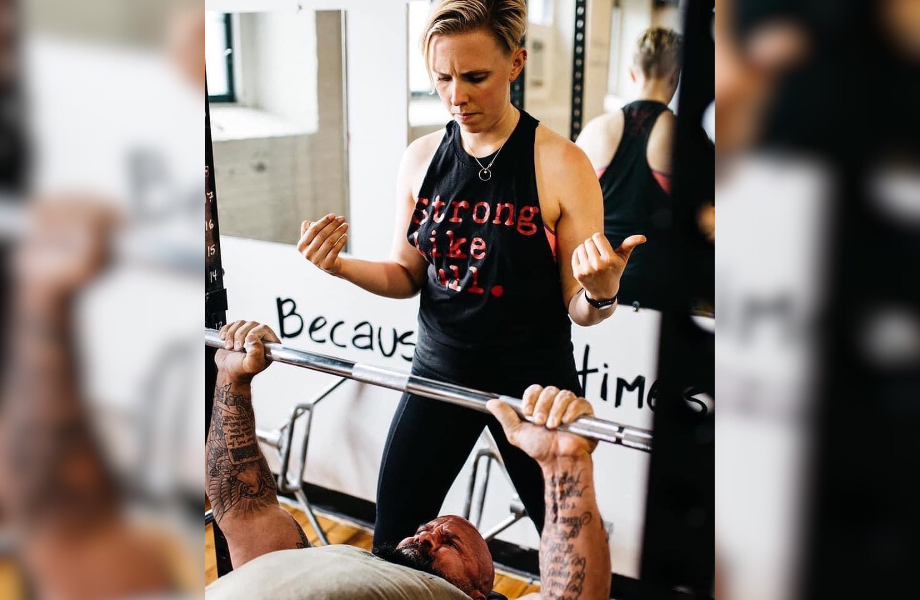
That said, the NSCA will be changing this prerequisite in the near future. Starting on January 1, 2030, to be eligible for the CSCS exam, candidates must have a bachelor’s degree from a program accredited by an NSCA-approved accrediting agency. The degree must also focus on strength and conditioning.
It’s also worth noting that if you have a terminal degree in physical therapy or chiropractic medicine from an accredited institution, those are also accepted by the NSCA.
According to the NSCA website, you can use the NSCA Certification Handbook to find a list of acceptable accredited institutions.
Secondly, you’ll also need to have current CPR/AED certification. You are allowed to register and take the exam without the certification, but you’ll need to send a copy of valid CPR/AED certification within the first year of your exam date.
CSCS Exam and Pricing
The NSCA functions a bit differently than other popular certification courses on the market like ISSA or NASM. The exam is a stand-alone fee, separate from study materials or coursework. It’s also worth noting that you’ll have to apply for the exam and register to take your exam in-person.
Current NSCA members can sit for the exam for a $340 fee and for non-members the exam will cost $475.
While the NSCA doesn’t force you into buying study materials or an entire online course like many other certifications on the market, you will likely need some of the materials the NSCA offers to prepare for the exam.
GGR writer and Olympic weightlifter Caine Wilkes purchased the Essentials Of Strength Training And Conditioning textbook and online study course combination for $269 (and if you’re a current NSCA member you can get a $4 discount at $265).
Additionally, Caine can take as long as he wants to study and prepare for the exam. Because everything is sold separately he can purchase the textbook, online course, and practice exams without purchasing the exam, too. Once he’s ready to test, he can go through the application process and register. Once registered, he’ll have a 120-day window to complete the test.
To take the exam, you’ll have to complete an exam application on the NSCA website. After your application is reviewed, you can register for the in-person exam through Pearson VUE. The NSCA has a “Locate Testing Centers” button on their website that helps you locate a Pearson VUE testing center near you.
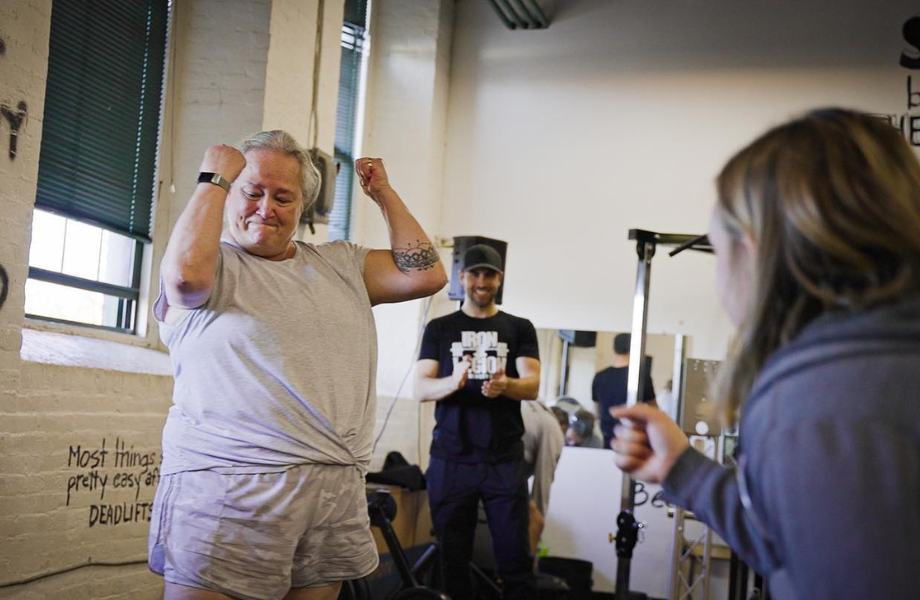
My experience with the NSCA is different because I sat for the CPT exam, not the CSCS. However, I will share that I decided to rent the textbook for the CPT exam (Essentials of Personal Training, 3rd Edition) from Amazon for a six-month period for around $50.
I opted out of study courses, and studied the material on my own and leaned on my coworkers at the time for help to explain topics I found tricky (like ATP or the Krebs cycle). Looking back, I would not recommend that. Plus, the CSCS is far more in-depth than the CPT exam.
Additionally, at the time one of my coworkers was also studying for the NSCA-CPT exam and bought practice tests and quizzes. Later, he told me the practice questions were the No.1 reason he passed the exam because he got a feel for the format of the exam and how questions were worded.
The CSCS Practice Questions Bundle costs $200 for non-members and $150 for NSCA members.
While you might not have to buy a course bundle, the costs add up for this a la carte certification prep. Let’s say you’re a current NSCA member ($130 value, annually). You’ll get discounts on the exam and the study materials—but you’ll still pay $340 for the exam, $265 for the textbook and the online study course bundle, and $150 for the practice questions.
Including the cost of a membership, that’s $880, which is on par for other certifications on the market. However, there are no financing options available through the NSCA. But because each piece can be purchased on its own, you can buy your course materials, then the practice exam, and finally pay for the exam when you’re ready. Once registered, just note you have a 120-day window to sit for the exam.
Exam Prep Materials
Although I don’t hold the CSCS credential, I am an NSCA-CPT, and both exams are based on the Essentials Of Strength Training And Conditioning textbook. The CSCS exam is much more difficult, longer, and in-depth than the CPT exam.
That said, from my experience taking the CPT exam, I found the detailed content outline provided for free on the NSCA website extremely helpful. Essentially, I used the outline to build a framework on what I was going to study and created my own study guide while reading the book.
In addition to the quality and in-depth textbook, the detailed content outline is one of the main reasons the CSCS earns a 5-out-of-5-star rating for quality of course material.
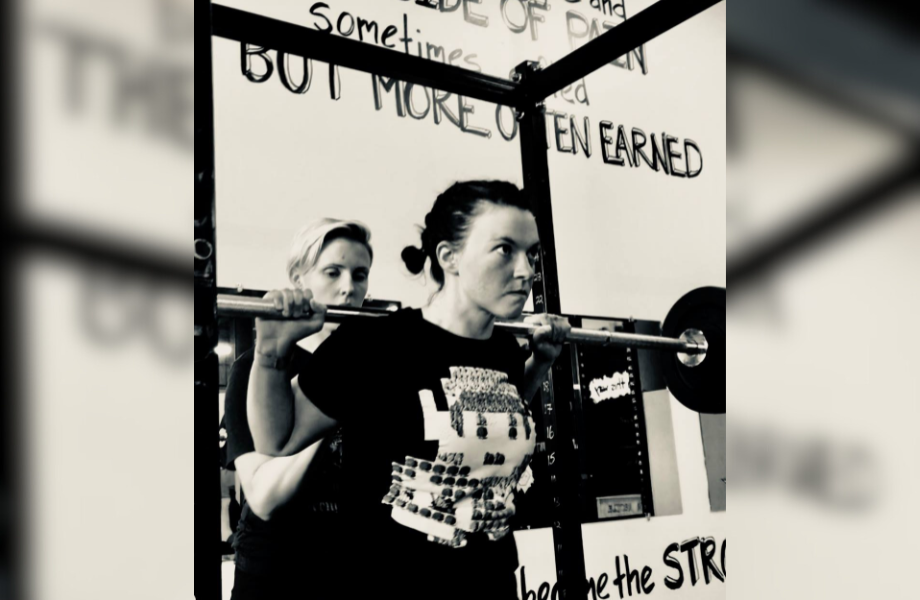
For the CSCS, you can find the Detailed Content Outline (DCO) on the exam preparation page under “Step 1: Planning.”
Although there are 220 multiple-choice questions, the exam can’t cover the entire textbook, so using the content outline can help you divert your attention to the right places. The current outline is 14 pages and covers everything from bioenergetics and sport psychology to program design and exercise technique.
Jarred Nobbe, CSCS, says, “Since I didn’t know what the test would cover, I studied the book front to back. But, having the background of exercise science from my bachelor’s definitely helped.”
While the textbook is the meat and potatoes for exam preparation, the NSCA website has a textbook and online study course combination available for purchase that may be worth the additional costs (especially for folks who don’t have a bachelor’s degree in exercise or kinesiology).
Liz Myers, CSCC, and owner of Mountain Edge Performance says, “My last year of college I started to study for the CSCS and took it at the end of my senior year of college. That was a good lead-up to the test. If I took it now, it would be a lot more difficult because that in-depth information is not as fresh.”
Additionally, there is a practice test which features 204 questions broken down into 59 exercise science, 21 nutrition, 50 exercise technique, 39 program design, 13 organization and administration, and 22 testing and evaluation.
Because there is a bit of flexibility and customization on how you study and what you want to purchase to study from, I rated the study package options at a 4.5-out-of-5-star rating. I like the fact you can find the textbook for less on Amazon (or forgo that all together and see if your peers have one you can borrow).
Plus, if you’re a college student or a recent graduate with a focus on exercise or sport science, you may just need the practice exam to get a feel for how the test will be structured. You may already own the text and just want to hop right into the test-taking aspect.
RELATED: NASM Nutrition Certification Review
Exam Design and Layout
The CSCS exam is divided into two sections. On the day you sit for your exam, the first section will have 95 questions and be 90 minutes long. After a break, the second section will be 150 minutes and feature 125 questions. Both sections have 15 non-scored questions.
According to the NSCA website, section one is based on scientific foundations and covers topics like exercise science, sports psychology, and nutrition.
The second section is based on practical/applied science covering exercise technique, program design, organization and administration, and testing and evaluation.
To pass, you’ll need a 70% grade on the scored questions. You can retake the exam and if you fail just one section, you’ll be allowed to retake the required section if you’re retaking for the first time.

Exam Options and Test-Taking Experience
The CSCS is a proctored exam that can only be taken at a Pearson VUE testing center. You will have to apply for the exam and provide your official transcript showing your bachelor’s degree or terminal degree in chiropractic medicine or physical therapy.
Once you’re approved, you can register on the Pearson VUE website and locate a testing center closest to you. There are over 5,000 testing centers with locations in 180 countries. According to the Pearson VUE website, if you do not find a convenient location you can contact the company to see what other options are available in your area.
For reference, I live in Maine and there are two Pearson VUE locations: One centrally located in the state, and in the southern part of the state closer to the New Hampshire border.
It’s a 220-question exam with all multiple-choice questions. You will not have to write any essays during the CSCS exam.
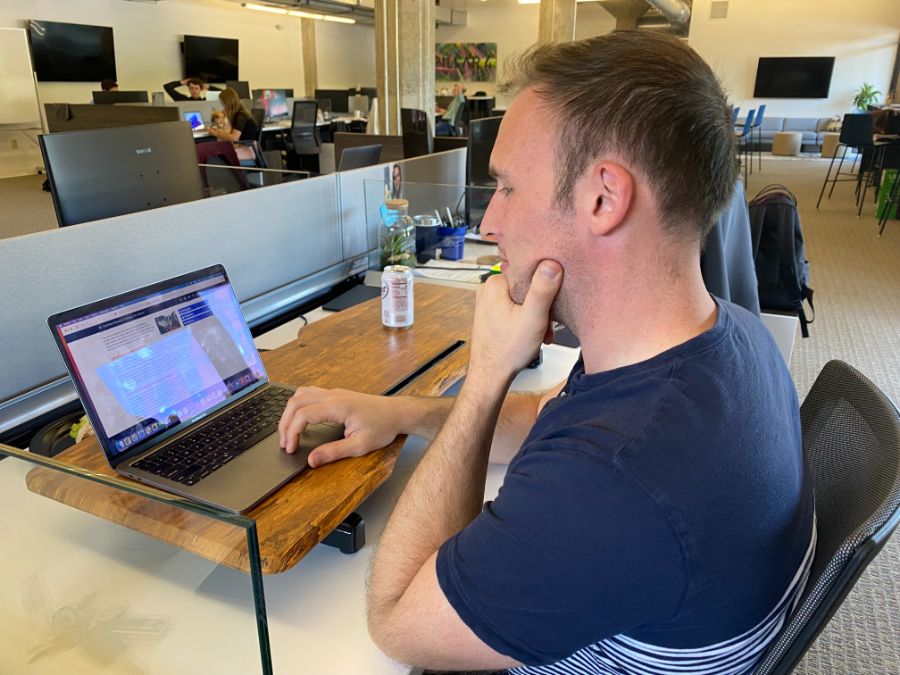
When it comes to taking the exam, the practice tests available through the NSCA website can help to prepare for the format and style of the test.
“The practical/applied part of the exam is about coaching. You’ll even watch videos and answer questions about what’s good, what’s bad,” says Jarrod Nobbe, CSCS, USAW-L2, and GGR expert panelist about his test-taking experience.
“The scientific foundations section was tough—there were some highly nuanced physiology and nutrition questions,” Jarrod explains.
Through education and real-life experience, Jarrod has a background in biomechanics, physiology, biology, and kinesiology. What Jarrod found was that the second part of the exam was heavily focused on nutrition (especially on macronutrients), which was a bit out of his wheelhouse.
“I only had one or two courses on nutrition,” he says. However, this doesn’t mean that will be your experience. In fact, the NSCA revises their exam material every few years.
NSCA Membership Perks
While you don’t have to be a NSCA member to take the exam to keep up with your credential, I recommend it because you’ll have access to discounts on events, exams, and continuing education (CEUs). Although I recommend staying current with your membership, I wish there were more benefits. For this reason, I give the post-exam perks category a 4-out-of-5-star rating.
There are even free quizzes you can take throughout the year for CEUs that are only free if you’re a member. You’ll also have access to NSCA’s five peer-reviewed research and practical application journals in addition to member-only videos on NSCA.com and NSCA TV.
CSCS Recertification Requirements
The NSCA has a two-year reporting period to maintain your CSCS credentials. You’ll have the option to engage in continuing education throughout the two-year period or retake and pass the CSCS exam. It’s worth nothing that with either option, you’ll need to maintain your CPR/AED certification.
In a two-year period you’ll need to earn 6.0 CEU credits from two out of four different categories. If you pass your exam during the reporting period, you’ll be allocated a different number of credits you need to earn.
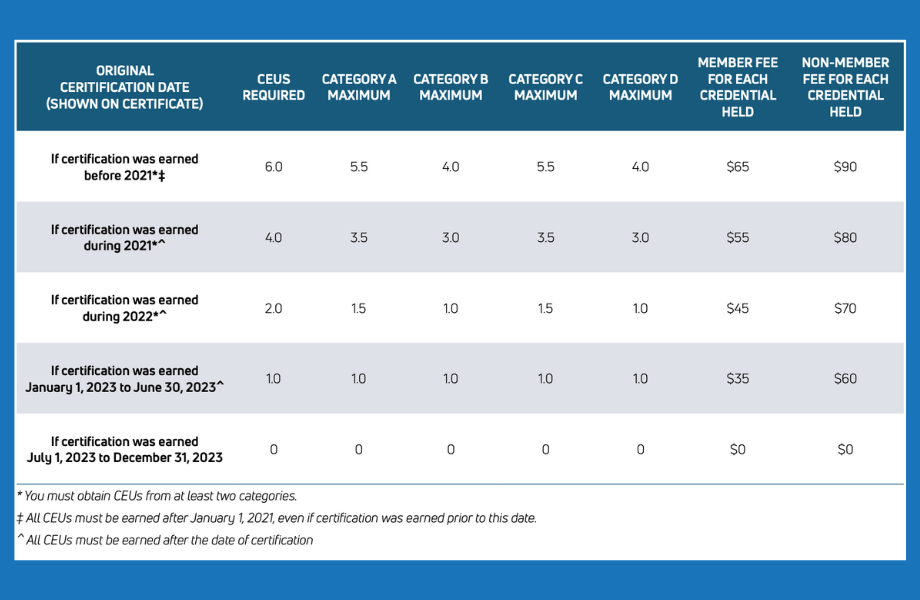
The categories offered by the NSCA include:
- Attendance (to clinics, conferences, and seminars)
- Share Your Expertise (volunteer work, presentations, or publications)
- Educational Activities (college course work, internships, earning another NSCA certification)
- Quizzes and Assessments (passing quizzes found directly on the NSCA website)
NSCA CSCS vs NSCA-CPT Comparison
NSCA-CPT
NSCA-CPT Certification
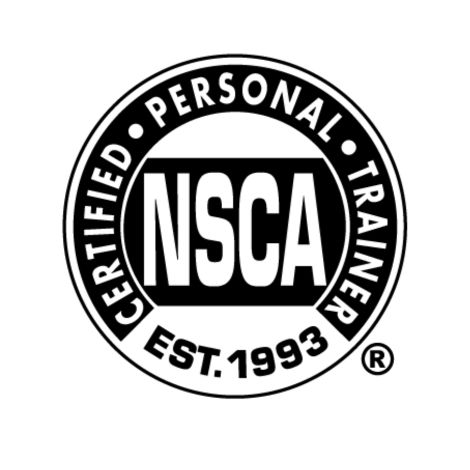
Product Highlights
- Certified personal trainer exam
- NCCA-accredited program
- 155-question exam
- Study materials sold separately
Pros & Cons
Pros
- NCCA-accredited program
- Provides accurate scope of practice
- In-depth approach to 1:1 coaching
- Multiple-choice question exam
Cons
- Study materials are separate from exam fees
- Exam fees are higher for non-NSCA members
- In-person exam only
Bottom Line
The certified personal trainer program from the National Strength and Conditioning Association (NSCA-CPT) offers an in-depth approach to coaching clients for safe and effective fitness programs. You’ll need to be CPR/AED certified to sit for the exam, be 18 years of age or older, and have a high school diploma. The NSCA-CPT exam is taken in-person at a proctored Pearson VUE testing center.
At this point, you may be wondering what’s the difference between the NSCA-CPT exam and the CSCS exam? Well for one, the CSCS has more questions, is split in two sections, and covers more in-depth topics in the practical/applied sections.
The CSCS also requires that exam candidates have a bachelor’s degree. The CPT exam requires a high school diploma and the candidate to be at least 18 years old.
The CSCS prepares coaches for working with athletes versus general population clients. The coursework and exam help develop the skills needed for athletic performance through strength and conditioning programs.
The NSCA-CPT exam arms personal trainers with the knowledge to work with general population clients and the physical adaptations that go along with strength and conditioning training.
RELATED: Reasons an Online Personal Trainer Can Be Great For Beginners
| NSCA-CPT | NSCA CSCS | |
| Prerequisites | High school diploma, 18 years or older, CPR/AED | Bachelor’s degree, CPR/AED certification |
| Study options | Self-guided through textbook, practice quizzes and tests, and some live prep courses available | Self-guided through textbook, practice quizzes and tests, and some live prep courses available |
| Hard copy materials available? | Yes | Yes; textbooks available for additional costs |
| Pricing | $300 member, $435 non-member | $340 for NSCA members, $475 for non-members |
| Term length | You have to sit for exam within 120 days of registering | You have to sit for exam within 120 days of registering |
| Expected prep time | 3 weeks up to 9 months depending on background | 3 weeks up to 9 months depending on background |
| Exam format | 155 multiple choice questions | 220 multiple-choice questions (broken into 2 sections) |
| Exam option | In-person at Pearson VUE Testing Center | In-person at Pearson VUE Testing Center |
What Is The CSCS Certification? Final Verdict
If you’re looking to elevate your personal training career or start working with athletes, the CSCS is the gold standard certification for strength and conditioning coaches. While the exam is difficult and covers a wide range of in-depth science topics, if you have the patience to study and prepare it’s worth the experience and addition to your resume.
Here are some things to keep in mind if you’re thinking about registering for the CSCS exam:
- To sit for the CSCS exam, you’ll need a Bachelor’s degree and a CPR/AED certification
- The CSCS is designed for coaches who work (or aspire to) work with athletes
- Collegiate teams and performance training facilities often require the CSCS to apply
- Textbook, online study course, and practice exams, and the real exam are all sold separately
- There are non financing options available through the NSCA
Liz Myers, CSCC, and owner of Mountain Edge Performance notes that, “Getting the certification is the first step to working with athletes. After that it’s so paramount that you get in with a mentor or do some shadowing and get hands-on experience—because at the end of the day that matters more than any certification you’re going to get.”
To that point, Jarrod Nobbe, CSCS, USAW-L2 says, “You can’t be a walking textbook that can’t apply the knowledge that you’ve learned—that’s no different than a little bit of literature.”
CSCS Certification Full Rating
CSCS Certification
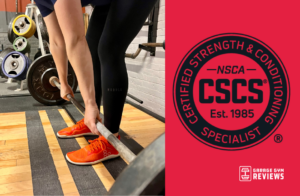
Trying to figure out what is CSCS? It’s the ultimate strength and conditioning certification. We talked to folks with their CSCS to find out more.
Product Brand: NSCA
Product Currency: $
Product Price: 340
Product In-Stock: InStock
4.31
What is the CSCS FAQs
What is a CSCS certified person?
A person who earns the CSCS is a Certified Strength And Conditioning Specialist. This certification prepares coaches to work to improve athletic performance through strength training and conditioning programs. Coaches seek to improve an athlete’s speed, balance, and overall movement while keeping injury prevention in mind.
What is the pass rate for the CSCS exam?
According to the NSCA, the pass rate during 2022 was 38% for passing both sections. This is based on 5,000 exam candidates, of which 64% passed the scientific foundations section, 42% passed the practical/applied section.
How long does it take to get CSCS certified?
Without practical experience or an exercise science (or related) degree, the NSCA estimates the study process could take about six to nine months. With a sport science-related degree and hands-on experience with coaching, the NSCA estimates about three to six weeks to prepare.
Is CSCS harder than CPT?
The CSCS exam is more difficult, longer, and goes into more detail in the applied sport sciences. The CSCS is a 220-question exam broken into two parts, lasting four hours. The NSCA-CPT exam is a 155-question test lasting three hours, with just one section.


